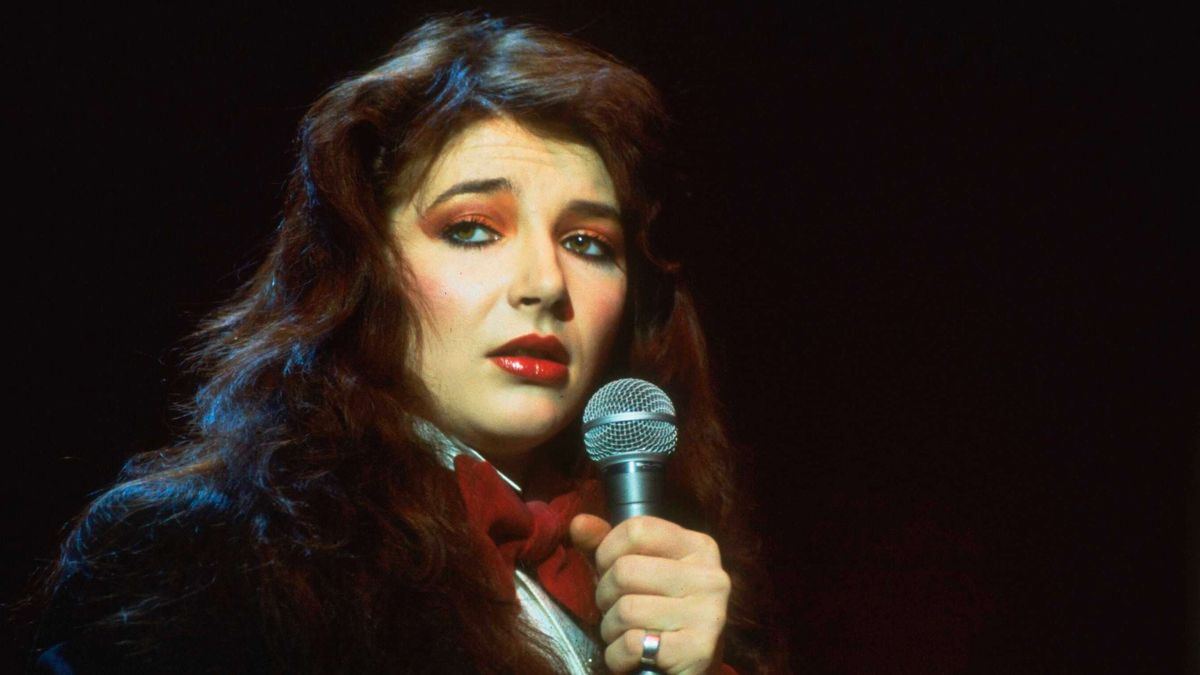Protect This Woman's Work: Kate Bush says no to Fake Bush, as stars’ petition against AI training hits 36,000 signatures
She’s the latest high-profile musical name to join the celebrity ‘who’s who’ of star signatories

Yesterday we wrote that Paul McCartney had issued a statement expressing his concerns over artists’ work being used to train AI and that “it could just take over and we don’t want that to happen.” Now Kate Bush has joined the throng asking for the UK government to impose legislation and draw a line in the sand aimed at holding back AI’s relentless march towards 'artistic' dominance.
The fear is that, if left unchecked, AI and its owners could end up dominating the market for music (and writing, art, movies and more) while human artists - who require time and money in order to produce their work - become increasingly redundant.
And it’s been broadly decided that the first step towards preventing such a creative apocalypse is to disallow AI’s owners from helping themselves to copyrighted content in order to train their creation on how to endlessly pump out something similar.
Right now, while high profile names such as OpenAI is seeking and signing contracts with creators and large repositories of content, there’s no official government-imposed law to prevent art’s wholesale harvest by AI with the entire issue an impossible to police grey area.
But in order for such a law to exist there has to be sufficient need for it, and that’s exactly what the Statement on AI training comes in, with over 36,000 signatures on board including music heavyweights such as Björn Ulvaeus, Thom Yorke, Roger Daltrey and now Kate Bush, all wishing such legislation into being.
Additionally – as no art is safe – the list also includes novelists Sir Kazuo Ishiguro, Stephen Fry and James Patterson (among many others) and actors Julianne Moore, Kevin Bacon, Miriam Margolyes, Hugh Bonneville, Rosario Dawson and more.
The petition states that “the unlicensed use of creative works for training generative AI is a major, unjust threat to the livelihoods of the people behind those works, and must not be permitted”.
Get the MusicRadar Newsletter
Want all the hottest music and gear news, reviews, deals, features and more, direct to your inbox? Sign up here.
Bush hasn’t released an album since 2011’s Director’s Cut, itself re-interpreted and re-recorded versions of her earlier work. However, last month she told the BBC: “I’m really looking forward to getting back into that creative space… Particularly [in] the last year, I’ve felt really ready to start doing something new.” Looks like she’s stepping up and making her feelings felt before Fake Bush releases an album for her…
The aim of legislation is, at the very least – it’s hoped – to ensure that copyright holders would be able to opt out of having their work plundered to train AI algorithms. Currently, there’s nothing to stop AI from analysing data, and a law requiring content holders to ‘opt in’ to allowing AI would be unlikely to succeed as tech companies would deem such restrictions as too far reaching.
But with an opt-out law in place, those that don’t value AI and its potential to change the world will, at least, be able to know they didn’t play any part in its future dominance. AI companies would then be required to cut deals with content owners. And if a content owner felt so inclined they could simply say no.
Ed Newton-Rex, a former executive at Stability AI who quit over concerns about the industry’s handling of copyright, is the man who’s arranged the petition, and yesterday told UK government MPs investigating the issue: “I think generative AI can be a powerful tool for creativity, but sadly, right now, as is commonly known, the majority of gen AI companies are unfairly exploiting the life’s work of the world’s creators. They’re using that to train models that compete with those creators.
“Changing the law to allow training on copyrighted work without a licence would, I think, be totally unacceptable to Britain’s incredibly important and rightly respected creators.”
We’re at an important crossroads and will one day be able to look back at the events of 2024 and say that this is the moment that we got it right… Or we got it wrong.
Daniel Griffiths is a veteran journalist who has worked on some of the biggest entertainment, tech and home brands in the world. He's interviewed countless big names, and covered countless new releases in the fields of music, videogames, movies, tech, gadgets, home improvement, self build, interiors and garden design. He’s the ex-Editor of Future Music and ex-Group Editor-in-Chief of Electronic Musician, Guitarist, Guitar World, Computer Music and more. He renovates property and writes for MusicRadar.com.
Most Popular








